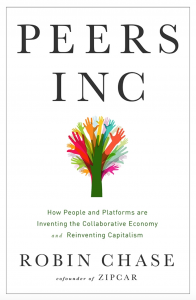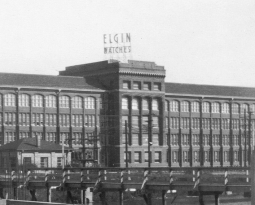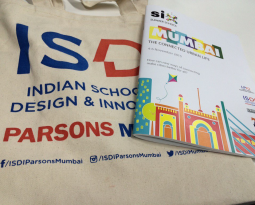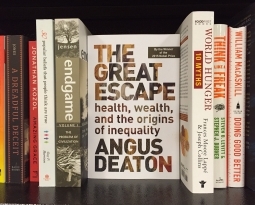You had me at ‘Future of Work…’
’m in Mumbai this week (I know!) for Social Innovation Exchange (SIX) Summer School. An alum several times over, I always look forward to seeing old friends and making new ones. So when I saw Tong Yee (founder of the mind-blowing Thought Collective and associated social enterprises in Singapore), we hugged, laughed, started to catch up, and then he said, “I can’t be social yet, I’ve got 30 minutes of work to do, but you need to meet one of my colleagues!” He introduced me to Yoek Ling Yong. Within minutes we were sharing ideas about labor markets, jobs, social mobility, and the #FutureofWork.
Soon after, Wally Tham joined in and we threw ourselves at open data and the role of the civic sector in transforming government and improving communities. Wally had worked in Indonesia during the peat fires, bringing a prototype mask that dramatically decreased the toxins fire fighters and community members were breathing and a device for measuring these toxins – making air quality frighteningly transparent.
That was only the first hour.
We committed to sharing our favorite resources. Twitter’s 140-characters seem limiting, so I’m posting them here for Yoek and the many other SIX alums with whom I had similar conversations throughout the week.
Kristin’s Highly Curated Favorites on #TheFutureofWork
Articles
Pacific Standard is running an amazing series on “The Future of Work.” It contains dozens of articles, many of which will lead you to additional research underway by the authors. Here are my favorites (so far):
- “Join the Maker Movement” (Dale Dougherty)
- “The Coming Political Storms” (Charles Postel)
- “The Rise and Fall of the Job” (Bethany Morten)
- “What Politicians Should Know” (Yi-huah Jiang)
- “Why Wages Aren’t Keeping Up” (Robert Solow)
The Atlantic did a July/August 2015 13-part series called “A World Without Work,” which also includes some nifty video interviews.
(Tim) O’Reilly is convening elite (I say this because I could have gone to India and back twice for the cost of the registration fee) thought-leaders next week (November 12-13) in San Francisco for the Next:Economy Event, focused on the Future of Work (I’ll be following #oreillynext & #nexteconomy). There’s a whole collection of articles on Medium that helps set the context.
[Full disclosure: It has bothered me for some time that for good, thoughtful analysis of economic changes, I regularly turn to Tim O’Reilly. I mean he’s top-notch and I admire him beyond measure for his work across many disciplines, but why aren’t there 100 other people who think as deeply and communicate as effectively in the field of workforce?]
McKinsey, Aspen, Deloitte, New America and others regularly publish reports and think pieces. As I encounter them, I save them in two places (because free apps can be flaky):
Podcasts
Jacob Morgan’s Future of Work podcast (he also has a book of the same name) has offered some interesting in-depth interviews. Not all of equal quality but some are very good. Probably best to look for a few people or topics you are interested in. He also recently launched a YouTube video series.
Sean Murphy hosted a series called Work Matters earlier this year. Again, it depends upon your interests, but there are a few really good ones in the mix.
Harvard Business Review Ideacast. I use this to preview the magazine. It’s not solely devoted to work or jobs, of course, but many articles focus at least in part on the workplace (the most recent episode is called “Simple Rules for Creating Great Places to Work,” for example). I usually really like it, and if not, I can just skip the magazine that month.
Books
Where to start? So many. Here are a few recent ones I found memorable.
Peers Inc. This is ZipCar founder Robin Chase’s new book. It is not explicitly focused on the workplace or work, but the subject comes up frequently as you might imagine. What she’s really talking about is peer-powered, technology-enabled platforms and the new kinds of businesses (and governing structures) they make possible. This is absolutely about work. I loved the narrative, her occasional rants, and very much appreciate the way she expresses her own learning and occasional uncertainty. The shifts she describes are seismic – we don’t really have any maps – and she acknowledges this. I also enjoyed the way she categorized the major players – the “Incs” included both government and corporations undermining the frequent (and in my view lazy) positioning of public and private sectors in opposition to one another. An earlier book on the same topic called The Mesh (Lisa Gansky) is another gem. There are many sharing economy books now, but these two poke at deep changes rather than just championing the latest unicorn.
A Bigger Prize. Again, a book not specifically about work or the workplace but about what drives people and organizations (or might, if we let it). Margaret Heffernan is a superb writer and her wit makes content that can seem rather medicinal come alive.
Need, Speed, and Greed. I bought copies of this unfortunately titled gem for all of the candidates that ran in our most recent Mayoral campaign. It’s little dated now (so many books, so little time!), but I really liked the way it linked innovation not just to business but to government, civil society, community. I think the global view also added a lot of value.
Locavesting (Amy Cortese) and The Local Economy Solution (Michael Shuman). Again, neither of these are specifically about the future of work (do you see a pattern here? I often find topic-specific books too narrowly focused and lacking in context or imagination).
Other
Here’s an interesting social network diagram of the experts who study the future of work (developed by The Open Society Foundation).
I fear I’m approaching a firehose impression, so I’ll stop now.
If you are into the #futureofwork, get in touch! Let’s figure out something awesome to do…







